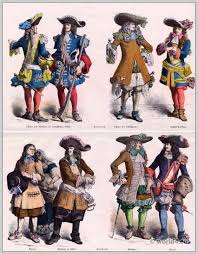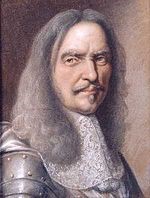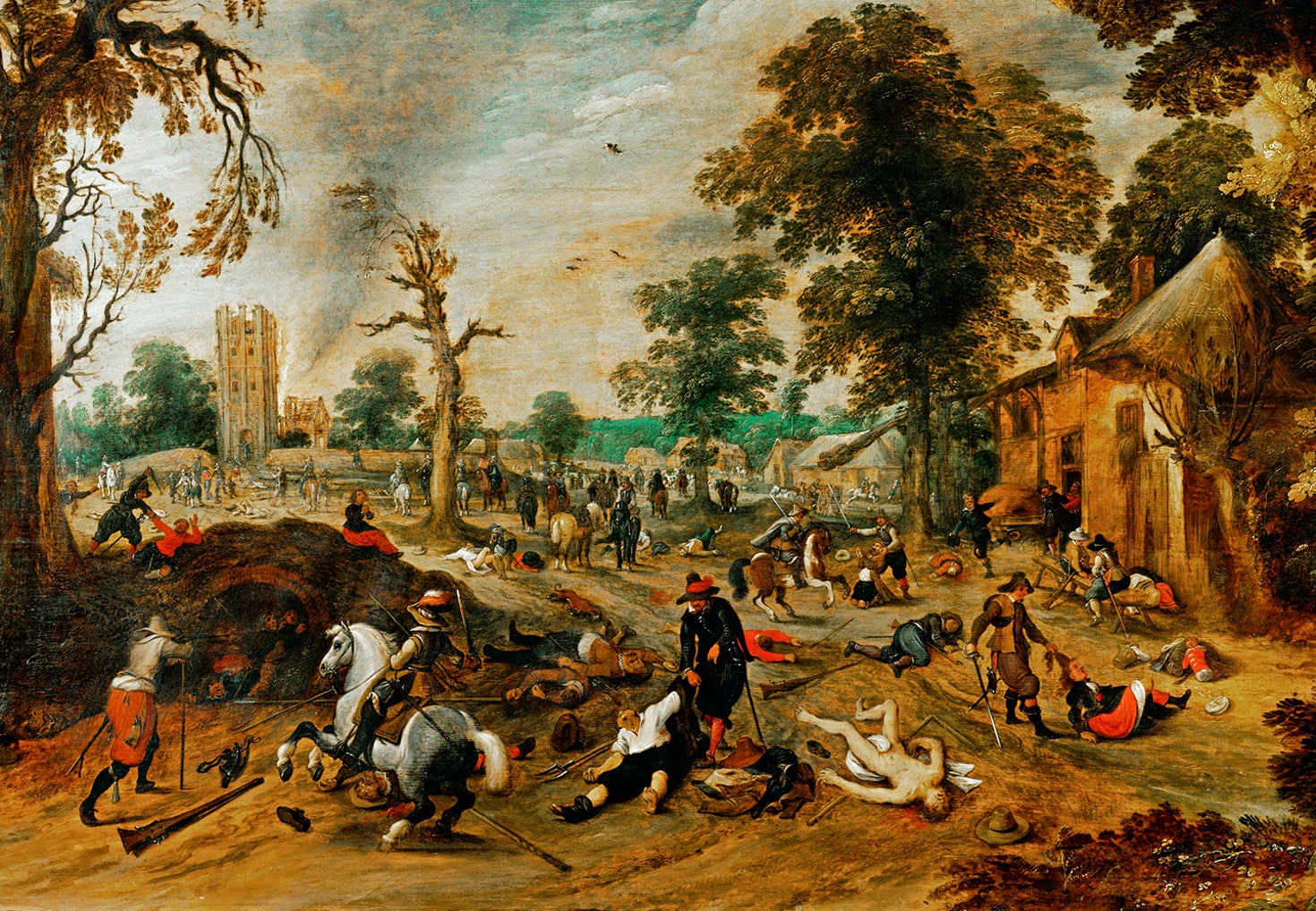
|
|
|
|
|
|
|
|
||||||||
The marquis and the marshal
As has been said, Philippe was born to be a soldier: Angélique recalls that old Lützen, when he first saw him in Monteloup, immediately identified “the value of the future officer”. And M. de Salnove, a moment before the announcement of his death, will reiterate that "The Marshal has a fine sense of strategy."
|
The young Marquis of Plessis-Bellière begins his military career at the age of 16 and makes an extraordinarily rapid advancement until he reaches the top at the age of thirty. He is a "Grand Marshal of France", a rank reserved for very few people, which allows him to govern an army in autonomous operations. The siege of Norgen is the feat that made him famous and to which his name remains most closely linked. When Desgrez first names Philippe du Plessis-Bellière to Angélique, he calls him “the King's Field Marshal. You know, the victor of Norgen”, speaking of him as of a well-known military figure.
Mlle de Parajonc too mentions the same battle to report "the way he behaves when he is victorious”. In the same first meeting in the gardens of the Tuileries, in the new edition, a clarification is added: when Angélique asks her friend why they have never met him before, Philonide explains that during the previous months he was fighting against the Turks in the contingent of 6000 men sent by the King against the infidel. At the decisive battle of Saint-Gothard "Monsieur du Plessis-Bellière was acclaimed for his ardour and skillful strategy." Military activitiesPhilippe’s activity is mainly of a military nature so much so that more than half of his life is spent in war or in any case with the army. He was born in 1634 and, without including his likely participations as a page in military campaigns, since 1650, starting from the rank of colonel and with a personal regiment, he took part in all the wars of the Kingdom of France, namely:
- Franco-Spanish War (1635-1659), ended with the Treaty of the Pyrenees, which also provides for the marriage of Louis XIV with the Infanta of Spain. Philippe participates during nine years, from 16 to 25 years of age, probably following Condé, at least in the first part, and then Turenne. Even in the autumn-winter of 1660, during the months of Peyrac's trial, despite the end of the war, Condé was in Flanders, as he tells Angélique, and Philippe was probably with him as well. And also in the spring-summer of 1660 Philippe is with the army, which could explain why he does not appear at the royal wedding of Louis XIV at Saint-Jean de Luz on June 9, 1660. - Austro-Turkish War (1663-64). As we have seen, Philippe, is part of the contingent of elite troops sent to side with the Empire and Austria in the League of the Rhine. The war takes place in Hungary (Battle of Saint-Gothard on August 1, 1664). During the Austro-Turkish war, the same contingent also participated with the Rhine League in the expedition of Djidjelli in Algeria, in fact, in the scene of the necklace, Philippe tells Angélique he knows the Mediterranean. - War of Devolution (1667-68). The war against Spain takes place in Flanders and in Franche-Comté, Spanish regions claimed by the Queen of France. Philippe fights all through the war, in Flanders under the command of Turenne and in Franche-Comté under Condé. The siege of Dole, in which Philippe will die, ends on February 14, 1668 (not in September 1667) and is the final act of the war. Philippe therefore holds a leading position in the army, whose Supreme Commander is Marshal Turenne, who succeeded Condé after his participation in the Fronde. The Grand Marshal of FranceAt court, the rank of Grand Marshal of France grants Philippe special privileges, including that of being allowed to sit in the presence of the King and to drive his carriage into the courtyard of the Louvre. The strict etiquette gives him the right to various priorities, as seen in the comedy scene, when he drags Angélique in the front row at the side of the stage, and the courtiers must let him pass in front.Philippe also holds the position of "Grand Master of the King’s hunt”, which at the court of Louis XIV was of the utmost importance, given the passion of the Bourbons for hunting: military and hunting positions were among the most eminent, and the Marquis holds them both. Besides, he is a personal friend of the King (in several circumstances Louis XIV speaks of "friendship" towards the Marshal), he is part of his retinue, that is, of those who are always close to him. Among the numerous "entrances" that follow one another in the morning at the King’s “levée” , Philippe belongs to the "Second Entrance", immediately after the royal family, the one intended for “the high nobility and specially authorized lords". Philippe's rank at court is therefore very high. By marrying him, Angélique will not become a marquise like many others, but “the Marquise du Plessis-Bellière” or “the Maréchale du Plessis-Bellière” (the marshal’s wife), with a husband belonging to the restricted circle of the King's favourites, and therefore with privileged access to the royal court. Philippe is always called "Marquis", that is, by his title of nobility, in the episodes that take place in peacetime, whereas in wartime he will be "the Marshal of the Plessis-Bellière" and after his death he will always be referred to as the "Marshal of the Plessis" or the "Grand Marshal of the Plessis-Bellière". Charles-Henri will be "the Marshal’s son" or "the son that my mother had with the Marshal of the Plessis-Bellière", Florimond and Cantor are "the Marshal’s stepchildren" and they refer to him as to "the hero". Angélique will be "The Maréchale du Plessis" or "the wife of the Grand Marshal who died in combat" and she will introduce herself saying "I am the widow of a Marshal of France". |
The Marquis and the Marshal seem to have two quite different psychological and behavioural profiles (so much so that in the last two sections of the story, "La cour" and “Philippe ou la guerre en dentelles” the contrast may even appear a little excessive). When we recall the beautiful powdered dandy leaning against the monument in the Tuileries garden in the spring of 1665 (first meeting with Angélique) or even the bad idol "white and fair, covered with gold" of the marriage contract (spring 1666), we struggle to recognise him a year and a half later during the campaign in Flanders. But it's not just a matter of time. The fact is that Philippe has yet another splitting in his personality (the character’s duality has already been highlighted). When he is at court, Philippe is "the Marquis", the courtier extremely refined in his look and strict in the rules of etiquette (at the moment of his arrest, after the duel, he will be worried about who will be entitled to take him to the Bastille, since there is a problem of incompatibility). His conversation seems limited to these subjects or to worldly talk, and it is fatuous just enough. It has already been said of his appearance: Philippe, despite being dressed in satins and lace, powdered and bejeweled, can never look effeminate. His physique (often noted by Angélique), his gaze, his military gait and posture are such that he can wear pink satin dresses and long golden curls. And the contrast enhances his appeal. Philippe’s approaching is often heralded by the “jingle of spurs” (e.g., the pregnancy announcement scene and the fireplace scene), and by the sound of a typically male step, reminiscent of the horse and of the war. At war and at home: Two different personalitiesHowever, Philippe is already very different from the courtier when he is at the Plessis, that is, far from Paris and close to his roots. Here he proves to be tough, authoritarian, "almost barbarian", as were his blond ancestors.When he is at war, the Marshal of Plessis is even more different: no more worldly gossip, his expression is sober and essential, as practical as his military activity. Philippe is a man of action. While the Marquis's cruelty is sadistic and vicious, the Marshal's harshness and brutality are part of his being a man of war, or better "a soldier" ("Soldier I am, soldier I stay", he says in the rug scene). Deeply in love as he is (and at his first love), he will never give too much space to the feeling, or at least to its expression, preferring concrete gestures to the "sweet talk": the gift of the necklace to Angélique is a declaration of love made “with a subtlety that soothed her wounded heart ”
Although it can easily be assumed that, if Philippe had not died, the Marshal would have ended up prevailing over the Marquis, however the two aspects of his personality would always have coexisted. The image of the metal breastplate that the Marshal wears under the lace collars is the perfect synthesis of the character. The aestheticising component of Philippe's character is inseparable from his being a man of action and does not contradict other primary elements of his temperament and of his mindset. Only at the end will Angélique realize the greatness of this aspect of her husband's personality. We are at the last scene: the Marshal and his wife retire after the banquet with the King, where Philippe, despite leading a siege, appears with a blue velvet uniform decorated with gold braid, a lace collar, shiny boots, ringed fingers. His tent in yellow satin embroidered with gold, decorated with the finest furniture and rugs, is more luxurious than the King’s. Angélique has an intuition, all of a sudden she understands that self-care even in situations of extreme danger, in which there is the risk of death, is a great proof of self-discipline, self-respect and courage. Philippe will be perfect until the end. While he is bidding his wife farewell, he leans over the mirror and smoothes his blond mustache (he is always the Marquis), before buckling the Marshal's sword. That is how he will go to death. « Back to the Philippe du Plessis-Bellière: Part I |


